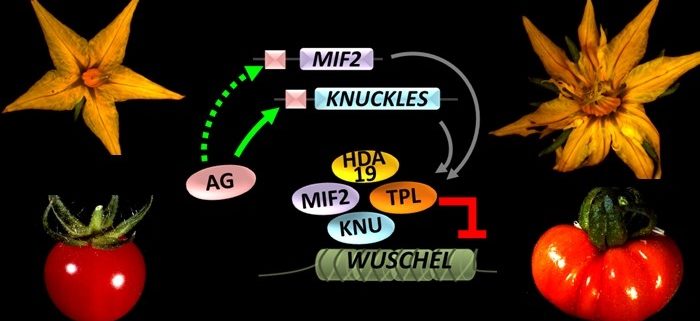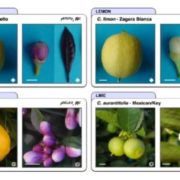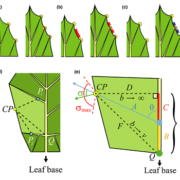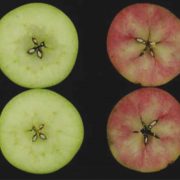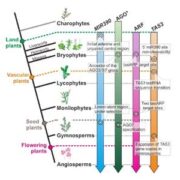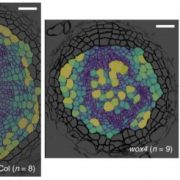When Mini Protein Makes Big Fruit
Bollier et al. investigate locule number control in Arabidopsis thaliana and tomato. The Plant Cell 2018 https://doi.org/10.1105/tpc.17.00653.
By N. Bollier and M. Hernould
Background: During flower development, production of a defined number of floral organs is due to the determinate fate of floral stem cells. The last structure to develop within the flower is the gynoecium, which will develop into the fruit containing a number of locules (chambers in which ovules, and ultimately seeds, develop). Fruit locule number is mainly due to the precise timing of inhibition of WUSCHEL, the major gene involved in stem cell maintenance. Floral meristem termination occurs when WUSCHEL is repressed, thus terminating development of any more locules. It has previously been shown that the Tomato Mini Zinc finger protein INHIBITOR OF MERISTEM ACTIVITY (Sl-IMA) is involved in WUSCHEL repression in tomato, but the exact mechanism by which Mini Zinc finger (MIF) proteins are involved in floral meristem termination had not been investigated.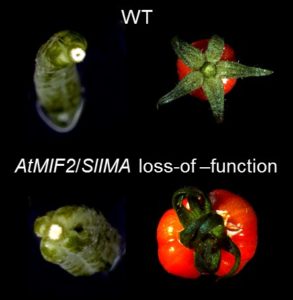
Question: We wanted to determine how the MIF proteins, At-MIF2 in Arabidopsis thaliana and its tomato homolog Sl-IMA, control the number of locules in fruits in Arabidopsis and tomato, respectively.
Findings: We found that, for proper floral meristem termination, Sl-IMA and At-MIF2 act as key adaptor proteins to allow the formation of chromatin remodelling complexes involving the transcription factor KNUCKLES, the co-factor TOPLESS and the histone deacetylase HDA19, which together act to repress WUSCHEL. When we switched off the expression of Sl-IMA and At-MIF2, WUSCHEL expression remained high in the floral meristem, leading to the development of an excessive number of carpels in both plant species. MIF proteins thus constitute conserved components of the floral meristem termination pathway with a key function in the determination of fruit locule number, an important agronomic trait controlling fruit size and yield.
Next steps: Fruit yield in crops is of major agronomic importance for food security. However, the traits selected for breeding fruit yield must not affect the quality of the final product. Increasing the number of fruit locules should affect biomass and yield without altering the intrinsic fruit quality. Deeper characterization of the molecular mechanisms underlying the complex regulation of floral stem cell termination will aid the selection of new targets for breeding fruit-producing crops.
Bollier, N., et al. (2018). At-Mini Zinc Finger 2 and Sl-Inhibitor of Meristem Activity proteins, a Conserved Missing Link in the regulation of Floral Meristem Termination in Arabidopsis and Tomato. Plant Cell. Published January 2018. DOI: https://doi.org/10.1105/tpc.17.00653


